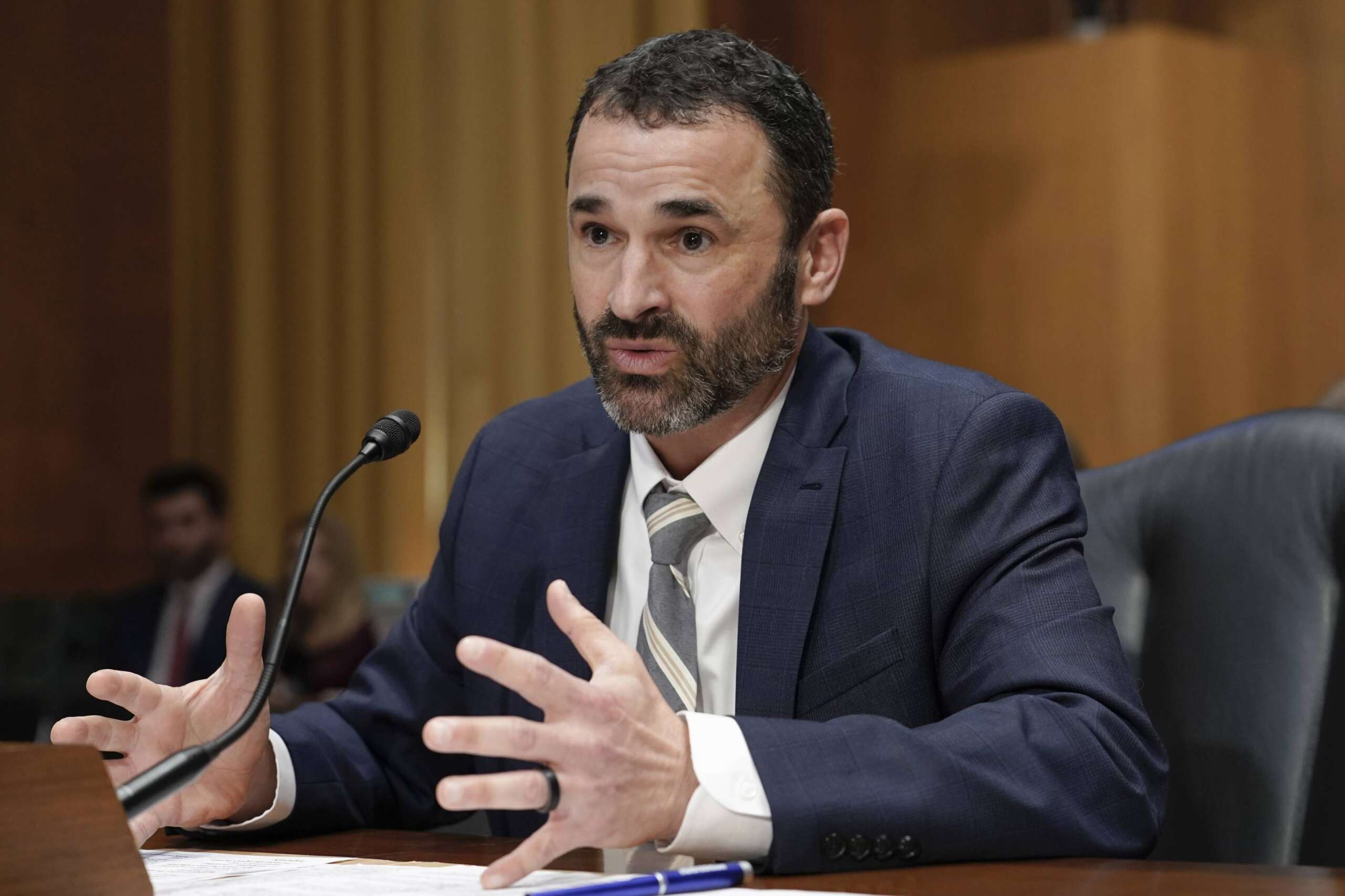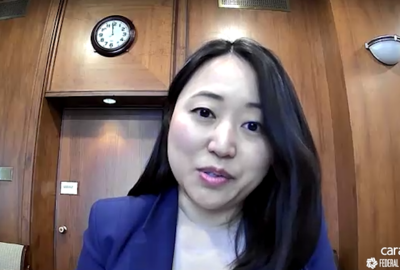Looming cuts threaten IRS plans to keep growing workforce and crack down on tax evasion
IRS Commissioner Danny Werfel says another $20 billion cut to the IRS’ budget would limit its ability to keep hiring.
The IRS has recovered billions of dollars in taxes owed by wealthy individuals, in large part because of the muti-year modernization funding it received that helped it staff up its enforcement operations.
The IRS has recovered $4.7 billion through new initiatives launched since Congress passed the Inflation Reduction Act more than two years ago. That total includes the agency recovering $1.3 billion from about 1,600 millionaires who had not paid overdue tax debts or filed tax returns in recent years.
The agency’s Criminal Investigation division also recovered nearly $3 billion related to its investigations of tax and financial crimes — including drug trafficking, cybercrime and terrorist financing.
IRS Commissioner Danny Werfel told reporters the agency’s modernization fund is helping to rebuild capacity, after more than a decade of budget and workforce cuts.

“I firmly believe the agency is on the right path, and the agency is well positioned for continued modernization efforts, including those from the incoming administration,” Werfel said in a call Thursday.
The agency is also tapping into nearly $60 billion from the Inflation Reduction Act funding to provide a higher level of customer service to taxpayers and modernize its IT systems.
The incoming Trump administration and Republican-controlled Congress, however, are considering a different approach for the IRS. Lawmakers have until the end of next week to reverse another $20 billion cut to its Inflation Reduction Act funding.
The current continuing resolution requires the IRS to hold back $20 billion of its funding — even though Congress already agreed to a one-time funding cut.
Deputy Treasury Secretary Wally Adeyemo told reporters in November that Congress would need to reach a comprehensive spending deal for the rest of fiscal 2025, or include additional language in another continuing resolution to avoid another $20 billion IRS cut from going into effect.
Werfel said another $20 billion cut would limit the agency’s ability to keep growing its workforce. Recent hiring efforts brought the IRS workforce up to 90,000 employees, and Werfel planned to get the agency to 100,000 employees by 2027.
“If the $20 billion is rescinded from the IRS budget, it would significantly hamper our ability to maintain the right-sized workforce to get this work done,” Werfel said. “It would mean that more times than I think is appropriate tax evaders would get away with evading their taxes.”
“The $20 billion is really necessary so that we can maintain the capacity to make sure that those taxpayers are playing by the rules,” he added.
Hiring more employees saves money
When the IRS plans to hire more exam professionals, Werfel said the Congressional Budget Office scores those new hires not as an additional cost, but as savings for the government’s bottom line.
“Each of these IRS employees that we hire earns far more than their salary, in terms of what they return to the government’s bottom line and return to the rest of taxpayers,” Werfel said. “Our goal is never to collect more than what is owed. Our goal is only to collect what is owed and not a penny more.”
Between 2010 and 2022, the IRS saw budget cuts that forced the agency to reduce its workforce through attrition. Werfel said the agency “lost a lot of people” who retired or left the agency during this period.
“We couldn’t backfill them. The size of our workforce had shrunk significantly,” he said.
By the time Congress passed the Inflation Reduction Act in 2022, the IRS workforce hit its lowest point since the 1970s. Werfel said this low level of staffing limited the agency’s ability to audit large corporations and complex partnerships.
“In the coming weeks and months, I would anticipate there will be budget debates, and the budget debate will center around whether to allow that $20 billion to fall out of the IRS budget. That would be critically damaging to our capacity to do the work we need to do to make sure that large corporations and complex partnerships are paying what they owe,” he said.
President-elect Donald Trump announced last week that he intends to nominate former Rep. Billy Long (R-MO.) to serve as the IRS commissioner. Werfel’s term runs through November 2027, but he declined to elaborate on his future at the agency.
“The IRS leadership team and our employees will evolve with the priorities of the new incoming administration,” Werfel said.
Direct File on chopping block?
Werfel said the IRS will also remain “laser-focused” on delivering on a core commitment to provide the nation with a solid tax filing season and ensuring more than 100 million taxpayers get their tax refund checks timely.
“The priorities of different administrations and Congresses change. What doesn’t change is the commitment of IRS employees to serve our great nation. We are excited by the progress we’ve made, and it’s important to build on our successes to meet the needs of the nation and to serve the American public,” Werfel said.
Meanwhile, House Republicans are calling on Trump to pull the plug on IRS Direct File.
The IRS tested its free, online tax filing platform with 140,000 taxpayers in a dozen states, as part of a pilot this year.
The agency planned to expand to 24 states next year as a permanent program. But nearly 30 GOP lawmakers are calling on Trump and the heads of his Department of Government Efficiency to kill the program in an executive order on his first day in office. The lawmakers say they don’t support the IRS using its funding to support Direct File, when there are other ways for taxpayers to file online.
Werfel said the IRS has now launched more digital tools in the last two years than in the previous 20 years, and that the agency has launched dozens of digital, mobile-friendly versions of some of its mostly commonly used forms.
“It’s been our goal to give taxpayers the same modern online experience they get with their bank or other financial institutions. And we continue to make progress,” Werfel said.
In addition to recovering billions in taxes owed by millionaires, the IRS has also collected $292 million from more than 28,000 non-filers. In these cases, the agency received third-party information, such as W-2 or 1099 forms, that indicted these individuals received $400,000 to $1 million in annual income, but didn’t file a federal tax return.
The IRS’ non-filer program ran sporadically since 2016, but budget and workforce cuts limited the agency’s ability to pursue these cases.
“Taxpayers and the nation deserve a well-functioning IRS. Everyone at the IRS recognizes that we still have more work to do — a lot, actually. But we have also demonstrated that we can quickly make changes that help taxpayers and the nation,” Werfel said.
Werfel said he continues to meet with lawmakers about the IRS’ modernization efforts and “the need for us to continue for us to continue this momentum, during a critical period for our nation’s tax administration system.”
“Based on my conversations, I believe there is much common ground that many can agree on. It’s critical to improve IRS technology, to provide new tools, add more efficiency and continue our work on taxpayer service,” Werfel said.
Copyright © 2025 Federal News Network. All rights reserved. This website is not intended for users located within the European Economic Area.
Jory Heckman is a reporter at Federal News Network covering U.S. Postal Service, IRS, big data and technology issues.
Follow @jheckmanWFED






